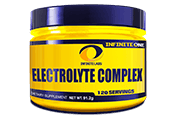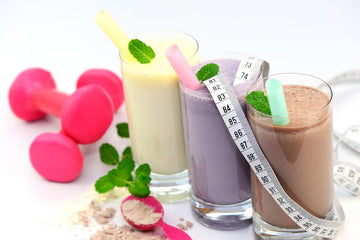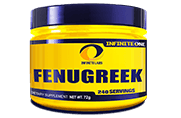

INFINITE ONE: ELECTROLYTE COMPLEX
Table of Contents
ABOUT:
Electrolyte Complex: Electrolytes are minerals within the human body that assist in muscle hydration and rehydration and provide support for muscular endurance.
ELECTROLYTE COMPLEX MAY HELP TO:- ASSIST IN MUSCLE HYDRATION*
- SUPPORT ENDURANCE*
| Electrolyte Complex: Electrolytes are minerals within the human body that assist in muscle hydration and rehydration and provide support for muscular endurance.It is often said that the human body is about 80% water. Drinking water is certainly essential during exercise performance. When you sweat you lose more than just water, you lose vital electrolytes. Refueling and rehydrating after intense training is second nature for some athletes. However, not everyone realizes the importance of replenishing essential electrolytes lost through perspiration, and that it can make or break performance. Water alone, however, will not hydrate your body. Electrolytes—water with dissolved salts and minerals—are critical to keeping the body hydrated. Electrolytes are substances that contain free ions making them electrically conductive, and physiologically the primary ions of electrolytes include sodium, potassium, calcium, magnesium, chloride, hydrogen phosphate, and hydrogen carbonate. These gradients are relevant to a variety of body processes including hydration, blood pH, and are critical for proper nerve and muscle function. Without the proper balance of these electrolytes muscle weakness, and severe muscle contractions can occur along with other medical emergencies |
Electrolytes, such as sodium and potassium, are electrically charged minerals that travel through the blood and extracellular fluid. They regulate the body’s hydration, blood pH, blood pressure, recovery of damaged tissues, and nerve and muscle function. Electrolyte levels are tightly controlled within a strict concentration range by the kidneys and a variety of hormones. While all electrolytes are important, special attention should be paid to maintaining sodium and potassium levels to protect against muscular and neurological deficits that can hinder performance, but your electrolytes are also tied to your mood as well.
Some research has suggested that sodium depletion can have an adverse effect on mood. The researchers examined how dietary electrolytes affected mood states in healthy volunteers. At the end of the study, although it was a short-term study for only four weeks, diets that were lower in sodium and higher in potassium seemed to be related to better moods. The low sodium/high potassium diet resulted in significant improvements in depression, tension, and overall mood compared to a moderate sodium/high potassium diet. Another consideration for the improvement in mood could be that the low sodium/high potassium diet was also higher in magnesium that is associated with mood states. Low magnesium diets are associated with depression; additionally magnesium supplementation has been shown to be an effective treatment for depression.
Athletes have difficulty sleeping at night may want to consider a magnesium supplement before bedtime to facilitate sleep and relaxation. Caution should be used when examining the effects on sodium content in relation to mood, most of the studies examine the role of sodium on mood, used sodium depletion or removed all the sodium from the diet whereas the following study used a low sodium diet. The researchers concluded that increasing dietary magnesium and potassium in conjunction with a low sodium diet may improve overall mood and well being. The study seems to rule out that low sodium diets are associated with irritability but also proves that a low sodium/ high potassium diet may enhance mood. It should be mentioned that previous report in the American Journal Clinical Nutrition examined the effects of a low sodium diet (50 mmol Na/per day) or a typical American diet with high sodium (150 mmol Na/day). Both diets had similar potassium and saturated fats; the researcher measured flow-mediated dilation (when blood flow increases through a vessel, the vessel dilates. This phenomenon has been coined flow-mediated dilatation.) After two weeks on a low and high sodium diet, the researchers reported that lower Na diet resulted in greater vasodilatation of blood vessels than a higher sodium diet. This work also supports other research that has shown that a high sodium diet can decrease nitric oxide activity.
Torres SJ, Nowson CA, Worsley A. Dietary electrolytes are related to mood. Br J Nutr. 2008 Nov;100(5):1038-45.

















